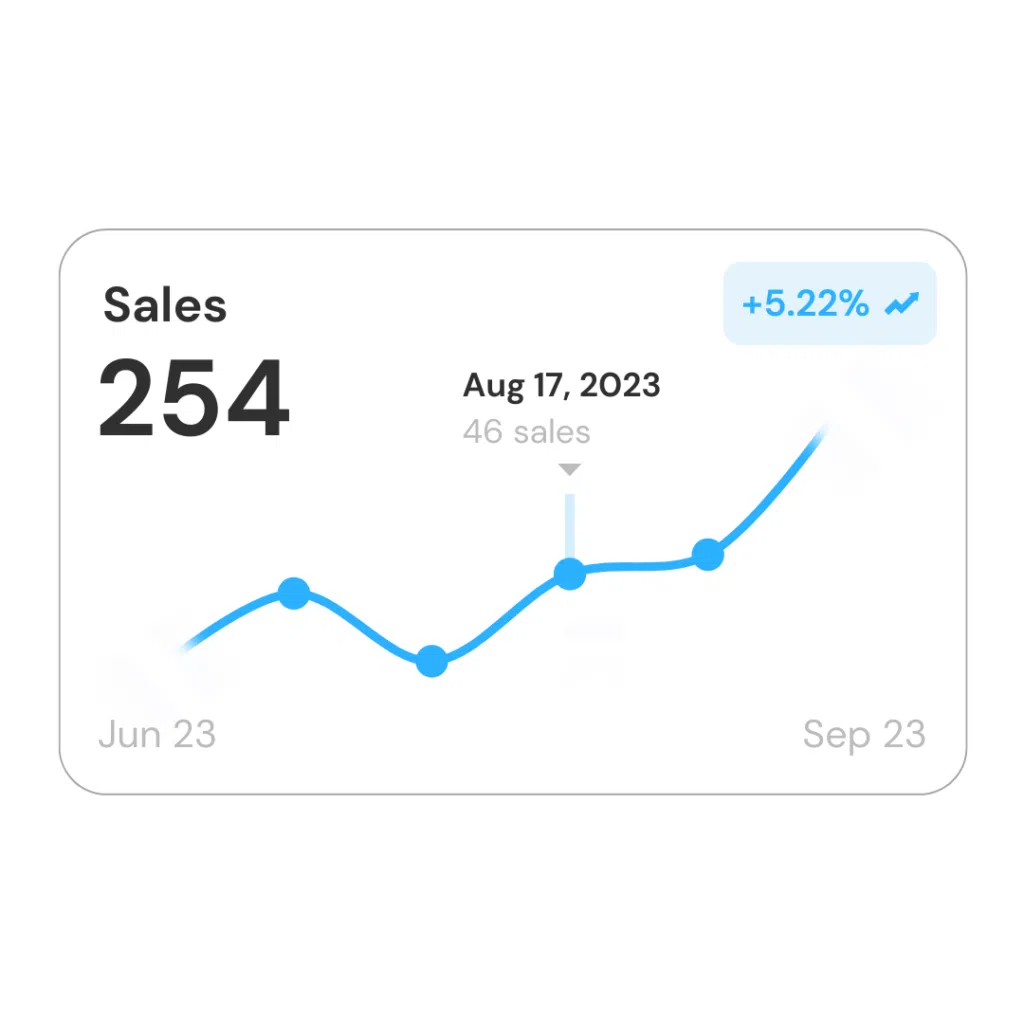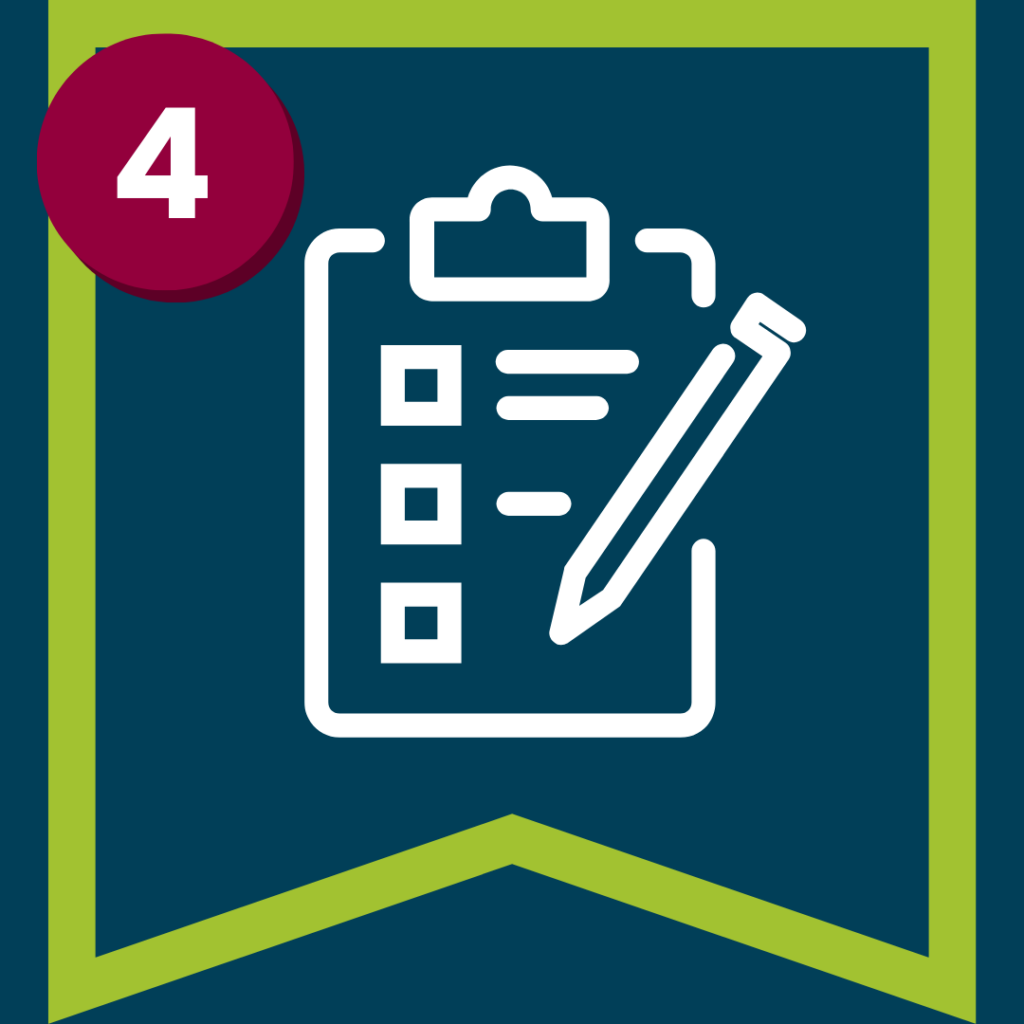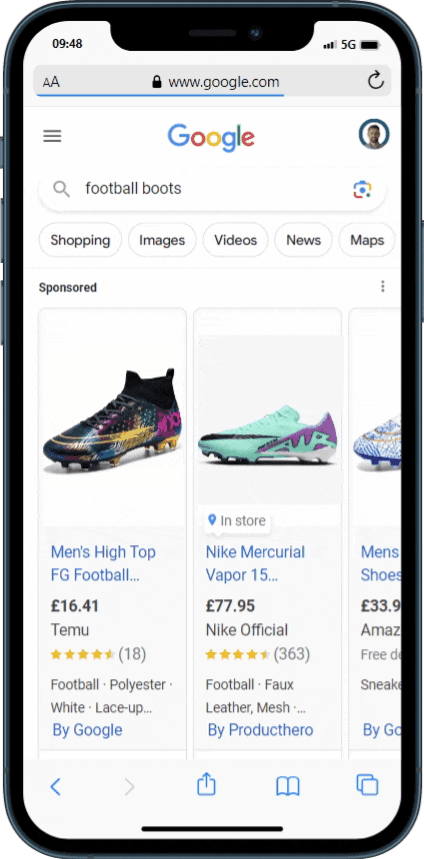Shopify SEO Agency
How does a Shopify SEO Agency help scale a Shopify Store from £20,000/month to £200,000? A winning SEO Campaign, on-page optimisation, technical SEO and link-building













Unleash the Power of SEO and Scale Your Shopify Store’s Organic Traffic
Take the right step with your online store. Drive your online presence, increase organic traffic, and boost sales with our advanced SEO techniques at Tillison Consulting.
Our SEO for Shopify experts target crucial elements and unique platform challenges to uncover overlooked sales opportunities.
Without the right strategy, your store may struggle with visibility on Google, trailing behind competitors in your industry. Our Shopify SEO agency can help address technical SEO issues like duplicate content, restricted URLs, and pages not ranking, ensuring your store maximises its potential and doesn’t miss out on customers.
Expect improved checkout rates, increased organic traffic, and overall sales growth. Let us handle the complexities, saving you time and ensuring your store stands out in the competitive eCommerce landscape.
Partner with Tillison Consulting for a dedicated approach to optimising your Shopify site.

Elevating Excellence: Our Tailored SEO Strategies that Boost Your Sales and Revenue

Initial Consultation:
A conversation with an SEO consultant to understand your current position and pain points as well as fully understand your business goals and expectations.

Keyword Research:
Our SEO specialists will meticulously conduct in-depth research to identify the most relevant and high-impact search terms for your Shopify website online presence.

Tracking and Analytics Setup:
We set up campaign tracking and Google Analytics for your Shopify site to provide valuable insights into website performance, helping us tailor our strategies for maximum impact.

Technical and On-Page Optimisation:
We will optimise your pages to give them the best chance of a higher position in the Search Lists. This will also mean fixing technical issues with the website that are hindering your progress.

Content Strategy:
We will create a content plan and craft content that not only captivates your audience but also strategically aligns with search engine algorithms, boosting your website visibility.

Link Building:
We identify opportunities to build quality backlinks to your site from reputable sources. This includes local citations that will help you to gain greater visibility in the map stacks.

Communications and Reporting:
We offer consistent updates on SEO performance, keyword positions, traffic, and conversion metrics, accompanied by monthly meetings to review progress and make necessary adjustments to our strategies.

Scaling and Growth:
We will continuously monitor and adapt your SEO campaign based on data-driven insights, identifying opportunities to scale your business and grow your revenue streams.
Accelerate Sales with our Tailored Shopify SEO Strategies for your eCommerce Store


Attract the Right Audience to your Shopify Store at the Right Time
SEO (Search Engine Optimisation) is crucial for the Shopify Website, as it ensures visibility to potential customers precisely when they’re searching for products you offer.
By optimising your website’s content, structure, and keywords, SEO helps your store rank higher in SERPs. This means when customers search for products relevant to your store, they’re more likely to find you.
With strategic SEO, you attract the right customers at the right time, driving organic traffic to your Shopify Store and ultimately boosting sales and revenue.

Improve Your Performance In Search
Our team of Shopify SEO experts will review your eCommerce store and tell you how we’ll get you better rankings and more website traffic.
SEO Benefits
- Maximise Revenue Growth: Experience a remarkable surge in your online sales.
- Increased Organic Traffic: Attract more organic traffic, ensuring potential customers find your products effortlessly.
- Informational Search: A comprehensive content strategy to attract customers when they’re researching - creating opportunities for influencing purchase decisions and sales.
- Improved Conversion Rates: Optimise product pages, category pages and improve user experience - transform more visitors into paying customers, improving conversion rate, sales and profitability.

Our Approach to Shopify SEO:

Popular Shopify SEO Videos
Popular Shopify SEO Videos
Shopify SEO FAQs
Is Shopify an SEO-Friendly Platform?
Yes, Shopify is considered an SEO-friendly platform. Here’s why:
Clean Code and Structure: Shopify websites are built with tidy and efficient code, making it easier for crawlers to index and understand the content of your site.
Mobile-Friendly: With the majority of internet traffic coming from mobile devices, Shopify ensures that its themes are responsive and optimised for mobile.
Customisable Meta Tags: Shopify allows you to easily customise important SEO elements such as meta titles, meta descriptions, and URLs for each page, helping you to optimise your content.
Fast Loading Speed: Shopify’s infrastructure is designed to deliver fast loading times, which is another important factor for SEO rankings. Faster websites tend to rank higher in search results.
SSL Security: All Shopify websites come with SSL encryption by default, providing a secure browsing experience for visitors. Secure websites are favoured by SERPs, which can positively impact your SEO rankings.
Integrated Blogging Platform: Shopify includes a built-in blogging platform, allowing you to regularly publish fresh and relevant content. Blogs are great for SEO as they attract organic traffic and help establish your site as an authority in your niche.
App Integration: Shopify offers various apps and plugins that can further enhance your site’s SEO capabilities. From optimising product images to generating XML sitemaps, these apps can help you improve your site’s visibility in search results.
Overall, while Shopify provides a solid foundation for SEO, it’s essential to implement smart techniques and regularly optimise your site to maximise its potential for SERP visibility. Working with our Shopify SEO experts can further enhance your site’s performance and rankings.
Shopify Search Engine Optimisation (SEO) is vital for several reasons:
Increased Visibility: SEO helps improve your website’s visibility in search engine results pages (SERPs), making it easier for potential customers to find your online store when they search for relevant products or services.
Organic Traffic: By optimising your Shopify website for relevant keywords and phrases, you can attract organic traffic. Organic traffic is valuable as it consists of users actively searching for what you offer, increasing the likelihood of conversions.
Cost-Effectiveness: Compared to paid advertising, SEO can provide long-term, sustainable results without the ongoing costs associated with paid campaigns. Once your website ranks well for target keywords, you can continue to benefit from organic traffic without additional ad spend.
Credibility and Trust: Websites that appear at the top of search results are often perceived as more credible and trustworthy by users. By optimising your Shopify site for SEO, you can enhance your brand’s authority and credibility within your industry.
Competitive Advantage: In today’s competitive online landscape, having a strong strategy can give your Shopify store a competitive edge. By outranking competitors in search results, you can attract more potential customers and increase your market share.
User Experience: SEO procedures often align with improving the overall user experience of your website. This includes optimising site speed, mobile responsiveness, and navigation, all of which contribute to higher rankings and happier visitors.
Long-Term Growth: Unlike short-term marketing tactics, SEO investments can deliver long-term growth and sustainability for your Shopify business. By consistently improving your website’s SEO, you can continue to attract relevant traffic and generate sales over time.
In summary, prioritising SEO for your Shopify website is essential for driving organic traffic, increasing visibility, building credibility, and ultimately, growing your online business in the competitive e-commerce landscape.
Comparing Shopify and WordPress is not a matter of one being inherently better than the other; rather, it depends on your specific needs and requirements. Here are some factors to consider:
Ease of Use:
Shopify: Designed specifically for e-commerce, Shopify is known for its user-friendly interface and intuitive setup process. It’s an all-in-one platform, meaning you don’t need to worry about hosting, security, or technical maintenance.
WordPress: While WordPress started as a blogging platform, it has evolved into a versatile CMS that can power various types of websites, including e-commerce stores. However, it may have a steeper learning curve for beginners, especially when setting up and configuring e-commerce functionalities using plugins like WooCommerce.
eCommerce Features:
Shopify: As a dedicated e-commerce platform, Shopify offers a wide range of built-in features tailored specifically for online stores. This includes inventory management, payment gateways, shipping options, and more.
WordPress: With the WooCommerce plugin, WordPress can transform into a powerful eCommerce platform. WooCommerce offers extensive customisation options and a large ecosystem of plugins and themes to enhance your online store’s functionality.
Customisation and Flexibility:
Shopify: While Shopify offers a selection of themes and customisation options, its flexibility may be somewhat limited compared to WordPress. Customising the design and functionality beyond the available options may require coding skills or hiring a developer.
WordPress: WordPress is highly customisable, allowing you to create virtually any type of website, including eCommerce stores, blogs, portfolios, and more. With thousands of themes and plugins available, you have greater flexibility to tailor your site to your specific needs.
Scalability:
Shopify: Shopify is a fully hosted solution, which means it’s optimised for scalability and can handle high levels of traffic and sales. As your business grows, Shopify can seamlessly accommodate increased demand without compromising performance.
WordPress: With the right hosting provider and optimisation measures, WordPress can also scale effectively. However, managing scalability may require more hands-on involvement, particularly in terms of server resources and performance optimisation.
Cost:
Shopify: Shopify operates on a subscription-based model, with monthly fees ranging from basic to advanced plans. While it provides a hassle-free solution with predictable costs, the total cost of ownership may increase with additional apps and transaction fees.
WordPress: WordPress itself is free to use, but you’ll need to consider expenses such as hosting, domain registration, premium themes, and plugins. While WordPress can be more cost-effective for small businesses, costs can vary depending on your chosen hosting plan and required features.
Ultimately, the choice between Shopify and WordPress depends on factors such as your budget, technical expertise, scalability needs, and the specific requirements of your online store. Both platforms have their strengths and weaknesses, so it’s essential to evaluate them based on your unique circumstances before making a decision.
Yes, blogging can be highly beneficial for Shopify SEO for several reasons:
Fresh Content: Regularly publishing blog posts adds fresh content to your Shopify website, which SERPs like Google tend to favour. Fresh content indicates that your site is active and relevant.
Targeting Long-Tail Keywords: Blogging allows you to target a wider range of keywords, including long-tail keywords, which are specific and often less competitive. By creating content around niche topics related to your products or industry, you can attract highly targeted organic traffic to your Shopify store.
Internal Linking: Blogging provides opportunities to internally link to product pages or other important pages on your Shopify website. Internal linking helps crawling bots understand the structure of your website and can improve the flow of PageRank throughout your site, potentially boosting the visibility of your product pages in search results.
Establishing Authority: By sharing valuable and informative content on your blog, you can establish your eCommerce site as an authority in your niche. This can increase trust and credibility among your audience, encouraging them to engage with your brand and products.
Attracting Backlinks: High-quality blog content has the potential to attract backlinks from other websites, which is crucial for SEO. Backlinks from reputable sources signal to web browsers that your eCommerce website is trustworthy and authoritative, leading to improved rankings.
Encouraging Social Sharing: Engaging blog content can also be shared on social media platforms, increasing brand visibility and driving traffic back to your Shopify store. Social signals, such as likes, shares, and comments, can indirectly impact SEO by indicating content relevance and popularity.
Answering Customer Questions: Blogging allows you to address common questions, concerns, and pain points that your target audience may have. By providing helpful solutions and insights, you can attract potential customers who are actively seeking information related to your products or industry.
In summary, integrating a blog into your Shopify website can be an effective strategy for improving SEO by providing fresh, relevant content, targeting a wider range of keywords, enhancing internal linking, establishing authority, attracting backlinks, encouraging social sharing, and addressing customer needs.
Shopify SEO services are professional offerings aimed at optimising Shopify websites to improve their visibility and rankings in SERPs. These services typically include a range of strategies and tactics tailored to enhance a Shopify store’s online presence and attract more organic traffic. Here are some common Shopify SEO services:
Keyword Research: Identifying relevant keywords and phrases that potential customers use to search for products or services related to your Shopify store. This involves analysing search volume, competition, and user intent to target the most valuable keywords.
On-Page Optimisation: Optimising various on-page elements of your store to improve visibility. This includes optimizing meta titles, meta descriptions, headings, URLs, image alt text, and internal linking structure.
Technical SEO Audit: Conduct a comprehensive audit of your Shopify website to identify and address technical issues that may impact SEO performance. This includes optimising site speed, mobile responsiveness, crawlability, indexability, and fixing any technical errors or issues.
Site Structure Optimisation: Improving the overall structure and navigation of your Shopify website to enhance user experience and crawlability. This involves organizing content logically, creating clear navigation paths, and ensuring that important pages are easily accessible.
Content Strategy: Develop a content strategy tailored to your Shopify site’s target audience and business goals. This may include creating blog posts, product descriptions, category pages, guides, tutorials, and other valuable content to attract organic traffic and engage users.
Link Building: Acquiring high-quality backlinks from reputable websites to increase the authority and credibility of your Shopify store. This may involve outreach, content marketing, guest blogging, and other link-building strategies to attract relevant inbound links.
Local SEO Optimisation: Optimise your Shopify store for local search queries to attract customers from specific geographic locations. This includes optimizing Google My Business listings, local citations, and geo-targeted keywords to improve local visibility.
eCommerce SEO Campaigns: Implementing specialised strategies tailored to e-commerce websites, such as optimising product pages, category pages, navigation menus, faceted navigation, product schema markup, and implementing best practices for online retailers.
Analytics and Reporting: Monitoring and analysing key performance metrics using tools like Google Analytics and Google Search Console to track the effectiveness of SEO efforts. Providing regular reports and insights to clients to demonstrate progress and identify areas for improvement.
Continuous Optimisation: Continuously monitoring, testing, and refining SEO campaigns to adapt to changes in search engine algorithms, industry trends, and competitors. Implementing ongoing optimization efforts to maintain and improve rankings over time.
Overall, Shopify SEO services aim to enhance the online visibility, organic traffic, and overall performance of Shopify stores by implementing a holistic approach to SEO optimisation tailored to the unique needs and goals of each client.
Yes, it is important to optimise images for SEO. Here’s why:
Page Loading Speed: Optimised images reduce the file size, which helps improve page loading speed. Faster-loading pages are favoured by SERPs and can lead to better rankings.
User Experience: Optimised images enhance user experience by ensuring that web pages load quickly and smoothly. This can reduce bounce rates and increase user engagement, both of which are positive signals for SEO.
Accessibility: Optimised images often come with descriptive filenames and alt text, making them more accessible to visually impaired users who rely on screen readers. Crawlers also use alt text to understand the content of images, which can improve the relevance of your web pages in search results.
Image Search: Optimised images can appear in image search results, providing an additional opportunity to attract organic traffic to your website. By optimizing images with relevant keywords and descriptive metadata, you can increase their visibility in image search.
Reduced Bandwidth Usage: Optimised images consume less bandwidth, which can result in cost savings for website owners, especially on platforms where bandwidth usage is metered.
Mobile Optimisation: With the increasing prevalence of mobile devices, optimizing images for mobile users is essential. Optimised images ensure faster loading times on mobile devices, improving the overall mobile user experience and potentially boosting mobile search rankings.
Schema Markup: Optimised images can also benefit from schema markup, which provides additional context for crawlers about the content of the image. This can lead to enhanced rich snippets in search results, such as image thumbnails or product ratings.
In summary, optimising images for SEO is an important aspect of website optimisation. It can improve page loading speed, enhance user experience, increase accessibility, attract traffic from image search, reduce bandwidth usage, optimize for mobile devices, and enhance visibility through schema markup. By paying attention to image optimization, you can improve the overall performance and SEO of your website.
Yes, meta tags do assist with SEO (Search Engine Optimisation). Meta tags are HTML elements that provide information about a web page to search engines and website visitors. Among various types of meta tags, two of the most significant for SEO are meta titles and meta descriptions.
Meta Titles (Title Tags): These appear as clickable headlines in search engine results pages (SERPs). They are vital for conveying the topic and relevance of a web page to search engines and users. Optimising meta titles involves including relevant keywords and accurately describing the page’s content. Well-optimised meta titles can improve click-through rates (CTR) from search results and contribute to higher search engine rankings.
Meta Descriptions: These are brief summaries or snippets that describe the content of a web page. While meta descriptions don’t directly influence search engine rankings, they impact click-through rates and user engagement. A compelling meta description can encourage users to click on your link in search results, boosting organic traffic to your website. It’s important to craft concise, descriptive meta-descriptions that accurately represent the page’s content and incorporate relevant keywords.
Additionally, other meta tags such as meta keywords (which are no longer used by major search engines like Google) and meta robots (which control search engine crawling and indexing) also contribute to SEO in their own ways.
In summary, optimising meta tags, particularly meta titles and meta descriptions, is a crucial aspect of on-page SEO. They help enhance search engine visibility, click-through rates, and user engagement, ultimately contributing to better overall SEO performance.
While including keywords in your domain name doesn’t directly influence rankings in today’s Google algorithm, it can still have an indirect impact on SEO. Here’s why:
Perceived Relevance: A domain name that includes relevant keywords may convey to users and search engines what your website is about. This can lead to higher click-through rates (CTR) if users perceive the domain as relevant to their search query.
Brand Recognition: A memorable and brandable domain name can contribute to brand recognition and recall. Establishing a strong brand presence can indirectly improve SEO by increasing brand mentions, backlinks, and user engagement signals, all of which are factors considered by search engines.
User Experience: A clear and concise domain name can enhance user experience by making it easier for visitors to remember, type, and share your website. Positive user experiences can lead to longer dwell times, lower bounce rates, and increased engagement, which are all favourable signals for SEO.
Anchor Text Optimisation: When other websites link to yours, they often use your domain name as anchor text. Having relevant keywords in your domain can contribute to the optimisation of anchor text.
Competitive Advantage: In some cases, having keywords in your domain name may give you a competitive advantage in niche or local markets, where keyword-rich domains can help differentiate your website and attract targeted traffic.
In summary, while keywords in domain names may not directly impact rankings as they once did, they can still play a role in SEO by influencing user perception, brand recognition, user experience, anchor text optimisation, and competitive positioning. It’s essential to balance keyword inclusion with branding considerations to create a domain name that is both SEO-friendly and memorable for your audience.




Our Expert Shopify SEO team has successfully scaled many eCommerce sites on the Shopify Platform. We continually refine our strategies to adhere to Shopify’s best practices, align with the latest algorithm updates, and curate a diverse set of methods to notably boost the organic traffic to your store, resulting in increased sales.
Shopify project successes are built upon strong collaborative partnerships with our clients, a value we hold in high regard. Your insights, as well as those of your team, form crucial foundations for overall success. Count on transparent and honest communication regarding performance and project updates.
Our Leading Shopify SEO specialists are dedicated to crafting customised strategies that systematically boost your online visibility. Each SEO project entails meticulous research, precise execution, link building and strategic management, all tailored to cater to the distinct requirements of every eCommerce client.